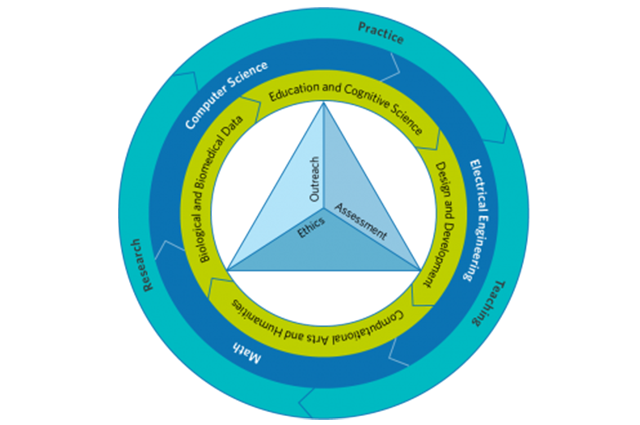T-TRIPODS Summer 2020

Despite the need to socially distance this year, T-TRIPODS continued to advance the understanding of the foundations of data science during Summer 2020. The group was able to pursue their research remotely and conducted reading group meetings via Zoom.
T-TRIPODS supported many summer undergraduate researchers across multiple Tufts programs. These included 6 Tufts Summer Scholar students who worked on data science-related research projects with faculty, as well as 18 students who participated in the inaugural T-Tripods DIAMONDS program directed by Ellise LaMotte at the Center for STEM Diversity.
LaMotte reports that the goals and expectations were met and that students appreciated the DIAMONDS research experience, developing skills such as comprehension of technical documentation and the ability to ask questions while collaborating in a research environment. The biggest challenge that LaMotte found was having to manage and implement the program in a virtual online manner. However, students, faculty, and staff stepped up to the challenge and created a supportive space for students to learn, create a cohort, and participate in research. The DIAMONDS program will run next year as well as the year after next.
The intensive reading groups took place with Research Focus I faculty and their associated graduate students. The topics for the reading groups were interdisciplinary, ranging from the foundations of machine learning theory to recent results in graph sparsification or optimal transport models. During and after a student’s presentation of a selected paper, professors would make comments and lead discussions. This proved valuable to third year mathematics PhD student Kaiyi Wu, as she was able to observe “how mature researchers perceive new concepts and identify information/techniques that are useful for their own work. It’s interesting to see how researchers from different backgrounds (Math, CS, EE) interpret and benefit from the same presentation.”
September 2020 marks the beginning of Research Topic 2: Spatiotemporal Data. Looking ahead to 2021, there will be a two-day workshop on graph algorithms that is planned for April 24 and 25.
Department:
Computer Science